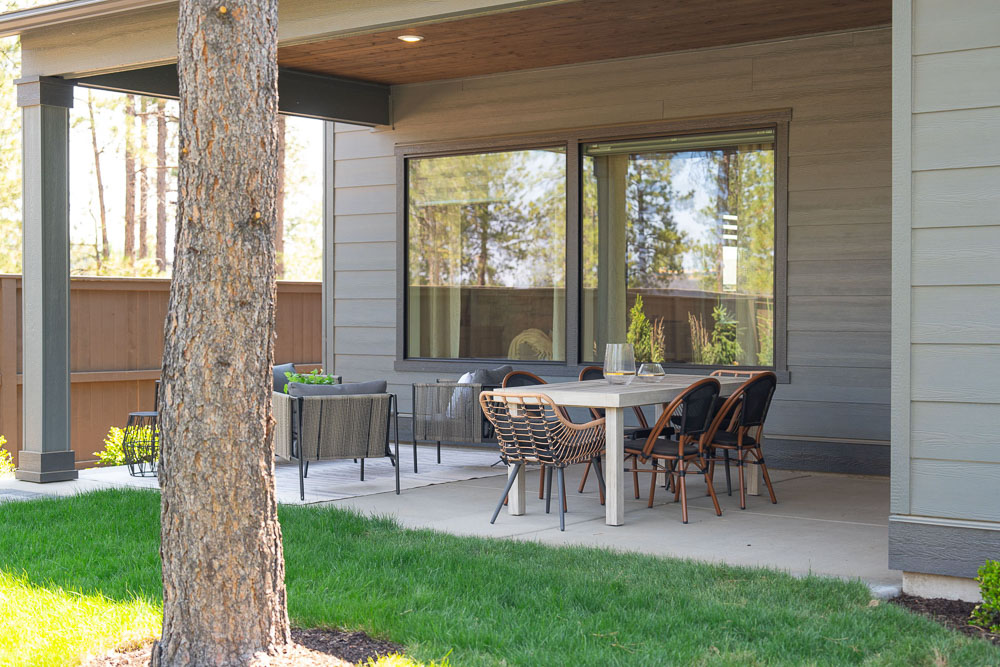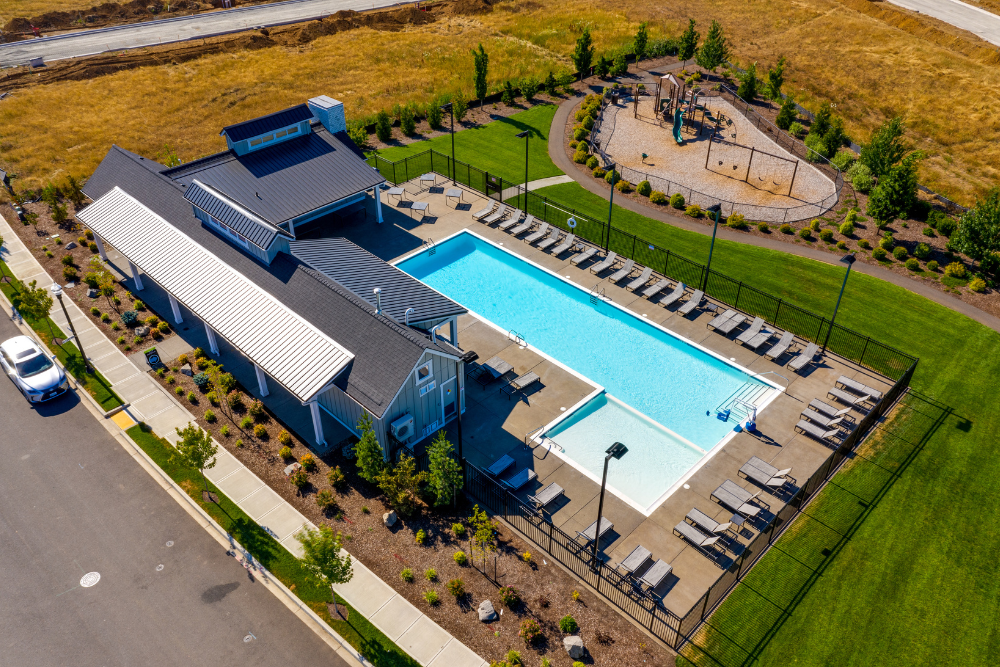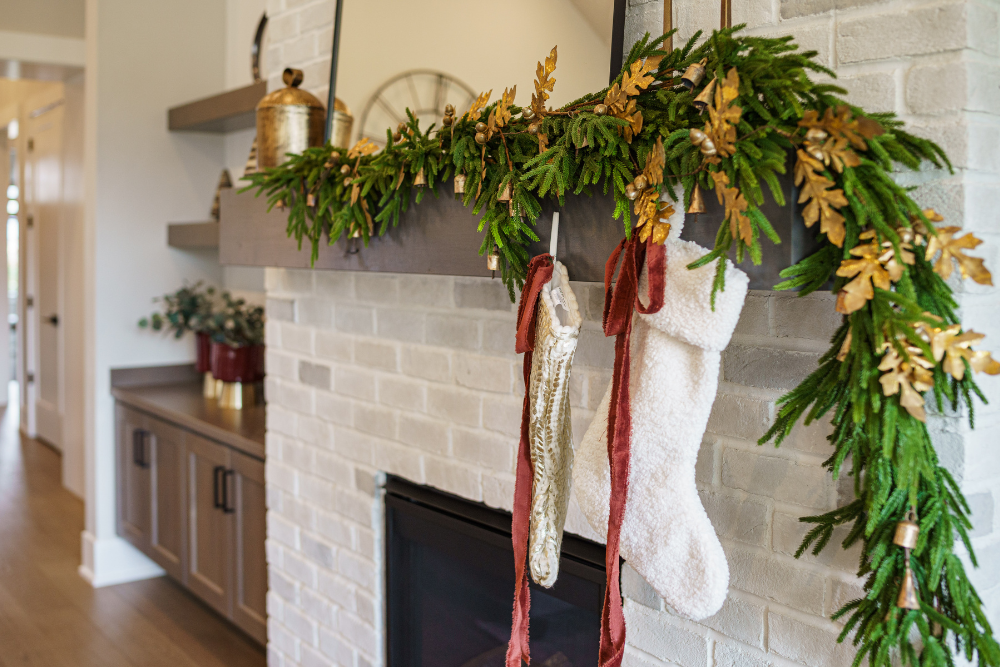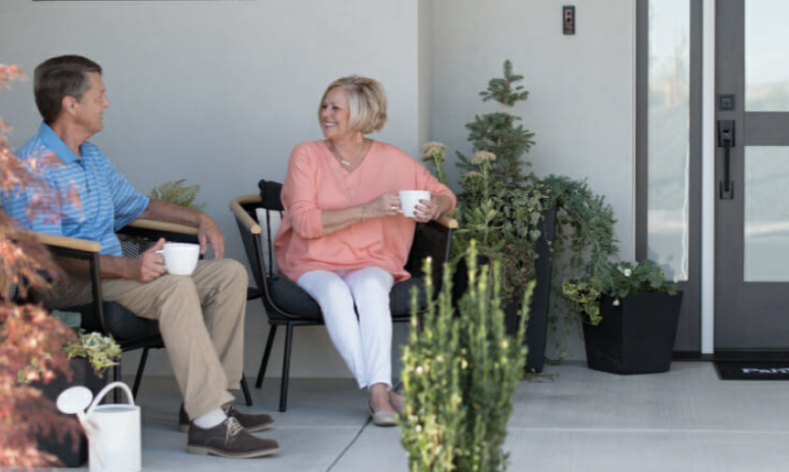Fall and Winter Pahlisch Home Maintenance Checklist
Though blue skies and sunshine may still be around, now’s the perfect time to get your home ready for the snow and rain! We know, it’s practically cruel to suggest you shrug off summer and sprint ahead to fall. It almost feels unfair to ask you to do it. But by setting aside a few short stretches of time to go through the Pahlisch home maintenance checklist, we’re confident that the months to come will be much easier to manage — with far fewer unexpected problems… and the bills that come with them.
Clear Gutters & Downspouts
Nothing ruins relaxing to the sound of the rain from inside a cozy home like a gutter or downspout overflowing. Over the course of a year, nuisances of all kinds can find their way into these convenient catchalls. To ensure yours are free from cascade-causing debris, make sure they get a thorough cleaning-out before the storms even start. Clogged gutters can lead to a flooded interior and damaged exterior of your home.
While you’re at it, watch for proper water drainage from all downspouts, which should be clear of obstructions. It’s important they’re doing their job of whisking water away from your driveway, walkway, and foundation, where it can pool up or seep into unwanted areas. Refer below for other outdoor tasks on the Pahlisch homeowner maintenance checklist.
Safeguard the Sprinkler System
Shutting off an in-ground sprinkler system is a little more involved than pressing the off button, but it’s time well spent to ensure beautiful landscaping in the spring and summer. In areas where freezing is common, have the system blown out to purge residual water. Failing to free up that water can cause costly damage due to burst pipes.
After the water has been forced out (or fully turned off, in non-freezing locations), disconnect and drain garden hoses, kids spray toys, and anything else that holds, hurls, or handles water during warm weather. Store them somewhere dry to avoid letting any last droplets freeze within. Turn outside faucets firmly to the off position and consider using a weather-resident cover for extra protection.
If you’ll be removing snow later in the season by shovel, snowblower, or truck, mark any sprinkler heads that could be damaged with stakes, so they are spotted before being whacked or run over.
Clean & Store Outdoor Furniture
If you’ve had the good fortune of finding the perfect furniture set for your covered patio or outdoor oasis, keeping it in great condition from year to year is likely high on your list. First, wash and clean your patio favorites as directed, taking special care to remove grime, mold, and buildup from cushions, umbrellas, tables, and chairs. Splash on a fresh coat of paint or mend tears in the fabric. Last, plan to use a protective cover or make room elsewhere so they are ready for relocating in the offseason.
Service & Store Spring/Summer Equipment
Now that you’ve got your yard looking lush and green, ready your lawn and garden tools to return to action when the warm weather appears. Start by emptying power tools of fuel, cleaning debris from blades and receptacles, and changing the oil. Sharpen blades and replace any worn-out cords and string, and then add any used-up parts or provisions to your shopping list. If the garage or shed where you store your stuff has seen better days, sweep it out, clean it up, and clear away any unneeded items.
Stop Door & Windows Drafts
You might feel a bit funny peering around the nooks and crannies of your windows and doors to discover drafts until we tell you they’re responsible for 25-30% of energy heating use. To stop the heat from just waltzing away and lower your heating bill, you’ll want to inspect all exterior windows and doors for tight seals and air leakage.
Feel around the edges for a stream of air. Not sure? Close a door or window on a strip of paper. If the paper slides easily, you have a draft. Once found, use caulk or apply weather stripping to seal up the area. Do a visual scan to see if existing seals and caulking are still in good repair and replace if necessary. For an extra layer of insulation, a heavier set of curtains serves the purpose beautifully.
Perform a Furnace Checkup
This is a big one on our Pahlisch homeowner maintenance checklist. Before the cooler weather creeps in, call for a furnace inspection with a full cleaning or replacement of the filters as needed. Keep a few air filters on hand, too, then check and change them every few months to maximize efficiency until your next annual appointment. By taking care of your furnace, you extend its useful life, keep energy costs down, maintain healthy air quality, and increase your peace of mind.
Pahlisch Homes furnaces are equipped with four air filters that require inspections twice and year and typically need to be replaced only once a year.
Complete a Safety Check
From jack-o-lanterns to Christmas lights, extension cords to greenery, the cold-weather holidays bring with them plenty of safety concerns in and around the home. Take the opportunity to check on your smoke alarms and carbon monoxide monitors, replacing batteries, and stocking up on more. Keep an eye out for frayed cords and overcrowded outlets, and make sure fire hazards, including seasonal décor, are far away from heat sources like the fireplace, stove, and candles. Finally, ensure your fire extinguisher is unexpired, accessible, and ready for use.
Ready the Winter Equipment
The best gear in the world won’t do a bit of good if it’s not ready to go when you need it. Whether your winter essentials include a snowblower, generator, or shovel, take a little time to make sure they’re fit for use and in full working order. Finding a part or relying on a repairperson could be tough when the weather gets bad, so plan ahead for peak performance. Don’t forget to replenish your supply of gasoline, and then store it securely away from heat sources and out of the reach of children.
Do a Temperature Check
Though it can be tempting to load up on blankets and hide out under the covers for warmth, thermostats should be set no lower than 65 degrees during freezing temperatures — even when you’re not at home. When you take the temperature lower, you are risking damage to your system. Make the most of the heat you have by setting ceiling fans to turn clockwise at a low speed to draw the warmer air up and push it out and around the space.
Fight Ice Safely
Never use chemical ice melts on concrete, pavement, or asphalt. Not only are chemical ice melts a health hazard for pets, people, trees, and soil, but using them increases the number of freeze-thaw cycles that occur and ups the potential for damage. That means over time your hard surfaces will suffer in both appearance and durability. What’s more, on light, fluffy snow, chemical ice melts aren’t even effective. As a safe, efficient alternative, clear away snow and ice before it becomes thick, slick, and heavy. This may be enough to ensure a safe, traversable walkway and driveway without any chemical concerns. If needed, use sand as an ice-melt substitute.
Deal with Cracks
When water gets into surface cracks, it freezes, expands, and puts pressure on the surrounding surfaces, making existing cracks even bigger. It’s all a natural effect of winter’s freeze-thaw cycle, which can be worsened by ice-melting chemicals. You can avoid the expansion of cracks by keeping ice from forming on your walkways and driveways in the first place, so it doesn’t have a chance to melt and enter the pores and cracks below. If cracks have already formed, however — as they will naturally, thanks to weather and settling — consider a concrete patching compound or caulk. For larger cracks, add sand beforehand.
Close Off Foundation Vents
In homes with crawl spaces, foundation vents improve airflow under a house and maintain healthy humidity and air quality. During the warmer months, foundation vents should stay open, but in the colder months, they should be shut or blocked to stop pipes in the crawl space from freezing, especially when temperatures drop into the 20s or below. Use foam blocks made for this purpose to provide extra protection.
Fend Off Frozen Pipes
Whether your home sees freezing temperatures each year or experiences a cold snap rarely, all homes can benefit from taking some simple precautions against burst pipes.
- If freezing temperatures are headed your way, open the cabinet doors of your bathroom vanity and kitchen sink to usher in warmer air from the surrounding room. When you are headed out on vacation or even away for the day, keep them open if there’s a chance of freezing.
- If your pipes have already become frozen, use a hairdryer, heat lamp, or electric heater to thaw them out. Do not use an open flame.
- If your pipes have burst or broken due to freezing, shut off the water at the water main in the garage, the water heater, and the water heater circuit breaker, and then contact a professional.
Deter Ice Dams
Ice dams are common in areas with consistently cold weather and regular snowfall, and their size and weight can cause numerous problems. They form when indoor heat rises, warms the attic, and melts the snow on the roof. The melted snow then slides to the lower edge of the roof, where it freezes. On the exterior of the home, roofs, and gutters can sustain significant damage from ice dams. Inside, meltwater can back up under the shingles, resulting in ruined walls, ceilings, drywall, and insulation.
Removing snow from rooftops and eaves before it builds up is one way to avoid ice damming. A professional can prevent further problems by sealing off warm air leaks in living spaces, providing adequate insulation, and venting properly. Heat tape may also be used.

This Pahlisch homeowner maintenance checklist was inspired by an at-the-ready resource provided to every new Pahlisch homeowner for staying on top of maintenance needs in and around their home. Each task not only fends off major repair, but also helps retain and grow the value of one of your most important investments. So what are you waiting for?
Whether you’re clinging to summer or ready for pumpkin-spice everything, you must admit: the seasons are getting ready to change — and your home should be, too. By taking time to properly prepare for the cold months ahead, as soon as the blustery days and chilly nights are here to stay, you can cozy up to comfort with full confidence that your space can weather any storm.
































































































